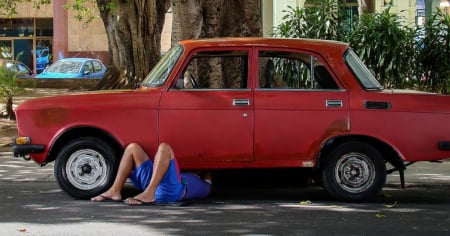Cuba's Minister of Transportation, Eduardo Rodríguez Dávila, cautioned on Monday that the new policies for vehicle imports, while an important step in improving the transportation system, should not be seen as a "magic solution."
"This is a series of actions aimed at addressing the transportation issue, but it is not a magic wand; we won’t resolve the shortcomings and deficiencies that have accumulated over several years simply by implementing this policy tomorrow," he clarified during the official Mesa Redonda.
Rodríguez Dávila explained that the reforms aim to improve the mobility of citizens and cargo, facilitate a gradual transition towards a more sustainable energy matrix, and generate the necessary funds for the development of public transportation and infrastructure.
"This is not something that will be resolved overnight. We're not talking about a magic wand, but rather a process that will take time," he emphasized.
The official reminded that these measures were announced by the Prime Minister, Manuel Marrero Cruz, during his address at the third Ordinary Session of the Tenth Legislature of the Cuban Parliament in July of this year.
The update to the regulations was recently published in the Official Gazette, detailing the changes in the requirements for the importation of vehicles, scooters, and hybrid or combustion bicycles.
Among the main changes, it is noteworthy that Cuban individuals will be allowed to import various types of motorcycles.
Additionally, official cooperators, diplomats, businesspeople, and Cuban collaborators will have the opportunity to import economical vehicles, whether they are combustion, hybrid, or electric, from the countries where they are working.
Crew members of ships and vessels will also be able to import vehicles, provided they have the authorization from the entity TRANSIMPORT, which will be responsible for centralizing the shipment of these cars to Cuba, currently experiencing its worst crisis in the last 65 years.
Main measures announced in the Official Gazette
Flexibility in property transfer: The transfer of vehicles between individuals and legal entities is permitted, including religious organizations and private companies, although the sale of state-owned entities to individuals will require approval from the Council of Ministers.
New tariff rates: Electric and low-consumption vehicles will have preferential tariffs of 10%, while internal combustion vehicles will face rates of up to 30% depending on their category and segment.
Reduction of trade margins: The trade margins for state-importing and marketing entities are capped at 20%, with the intention of lowering final prices.
Incentives for electric vehicles: The importation of electric cars and their charging infrastructure is prioritized, with reduced taxes and logistical support for acquisition.
Restricted access by frequency: Each individual may import only one vehicle every five years, with additional limitations for luxury vehicles.
Marketing of used cars from tourism: Vehicles that have completed their cycle in the rental tourism sector will be offered in local currency, with prices determined in relation to the secondary market.
Additional information about the regulations
Progressive special taxes: Rates of up to 200% will be applied to luxury vehicles and 100% on utility cars, depending on the category.
Prioritized models: The regulations include a preliminary list of approved brands and models, favoring low-consumption electric vehicles.
Funds allocated for the development of public transportation: The revenue generated from these taxes will be used for the maintenance and enhancement of public transportation infrastructure.
Frequently Asked Questions about the New Regulations for Vehicle Importation in Cuba
¿Qué medidas ha implementado el gobierno cubano para la importación de vehículos?
The Cuban government has relaxed the conditions for vehicle imports, allowing individuals to import motorcycles and mopeds, while cooperators, diplomats, and collaborators can import economy cars. These measures aim to improve access to transportation and alleviate the transportation crisis in the country.
What are the changes in tariffs for imported vehicles in Cuba?
Electric vehicles will receive preferential tariffs of 10%, while internal combustion vehicles will face rates of up to 30% depending on their category. This measure aims to encourage the importation of more sustainable vehicles and reduce environmental impact.
How will these measures affect Cuban citizens?
The measures could facilitate access to vehicles for some citizens, particularly those working abroad on state missions. However, high costs and economic restrictions remain a significant obstacle for most of the population.
What impact does property transfer have on the buying and selling of vehicles?
The new regulations allow for the transfer of vehicles between individuals and legal entities, which makes buying and selling vehicles in the country easier. However, transfers from state entities to individuals will require the approval of the Council of Ministers.
Filed under:
